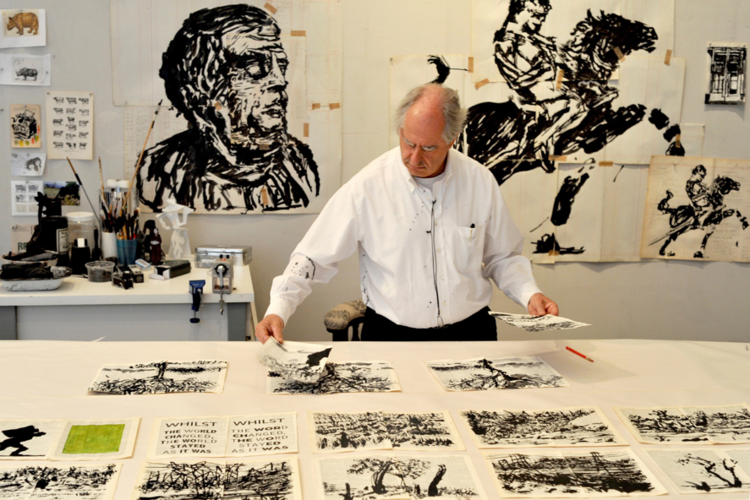Laboratory Talk with William Kentridge on Artistic Production and Knowledge Practices
January 22, 2021 11:00 - 12:30 [online]
In English
The DFG Research Training Group "Knowledge of the Arts" invites you to a 90-minute online conversation with South African artist William Kentridge as part of its event series IN THE LAB: Conversations on Artistic Practice!
Registration is required for participation as attendance will be limited. Please register until January 19 by emailing Sarah Hampel s.hampel@udk-berlin.de.
Prior to the session, all registered parties will receive a link to the online conference tool
William Kentridge (*1955 in Johannesburg) is one of the world’s most important contemporary visual artists, who has also made a name for himself internationally as a theater and opera director. Having grown up as a child of parents who fought apartheid in South Africa, world politics is part of Kentridge’s own biography and oeuvre. His works visualize the sociocultural effects of post-colonialism and apartheid from the perspective of his home country. Since the 1990s, Kentridge’s work has been exhibited worldwide, including at the Museum of Modern Art in New York, the Louvre in Paris, and the Whitechapel Gallery in London. Berlin’s Martin-Gropius-Bau dedicated a major show to him in 2016. William Kentridge also participated in Kassel’s documenta and the Venice Biennale multiple times. Currently, the large-scale exhibition WHY SHOULD I HESITATE: PUTTING DRAWINGS TO WORK at the Deichtorhallen in Hamburg offers a comprehensive overview of the South African artist’s oeuvre, and, according to Kentridge, is the largest presentation of his work to date. On display are works spanning more than 40 years of artistic production, including drawings, animated films, videos, prints, sculptures, tapestries and large-scale installations.
Our conversation will focus on the (shared) practices and processes, media and environments of Kentridge’s artistic production that take place in the studio, in the creation of exhibitions in galleries and museums, and in the staging of lecture and theater performances. How do ideas develop and are materialized and realized on paper in dealing with chalk and pencil, how in animation in dealing with space temporalities and celluloid, as in built spaces, through projected light or through movements in performance actions? What (non-)knowledge emerges and finds artistic expression? And how do political actors and events, collaborators in the studio and spectators and participants in different institutional spaces influence the artistic production?
The conversation will be led by members of the DFG Research Training Group “Knowledge in the Arts”. The transdisciplinary research group works from the premise that the arts not only represent, legitimize and disseminate forms of knowledge from cultural, social, political or economic fields, but that they also produce, shape and convey independent forms of knowledge.
